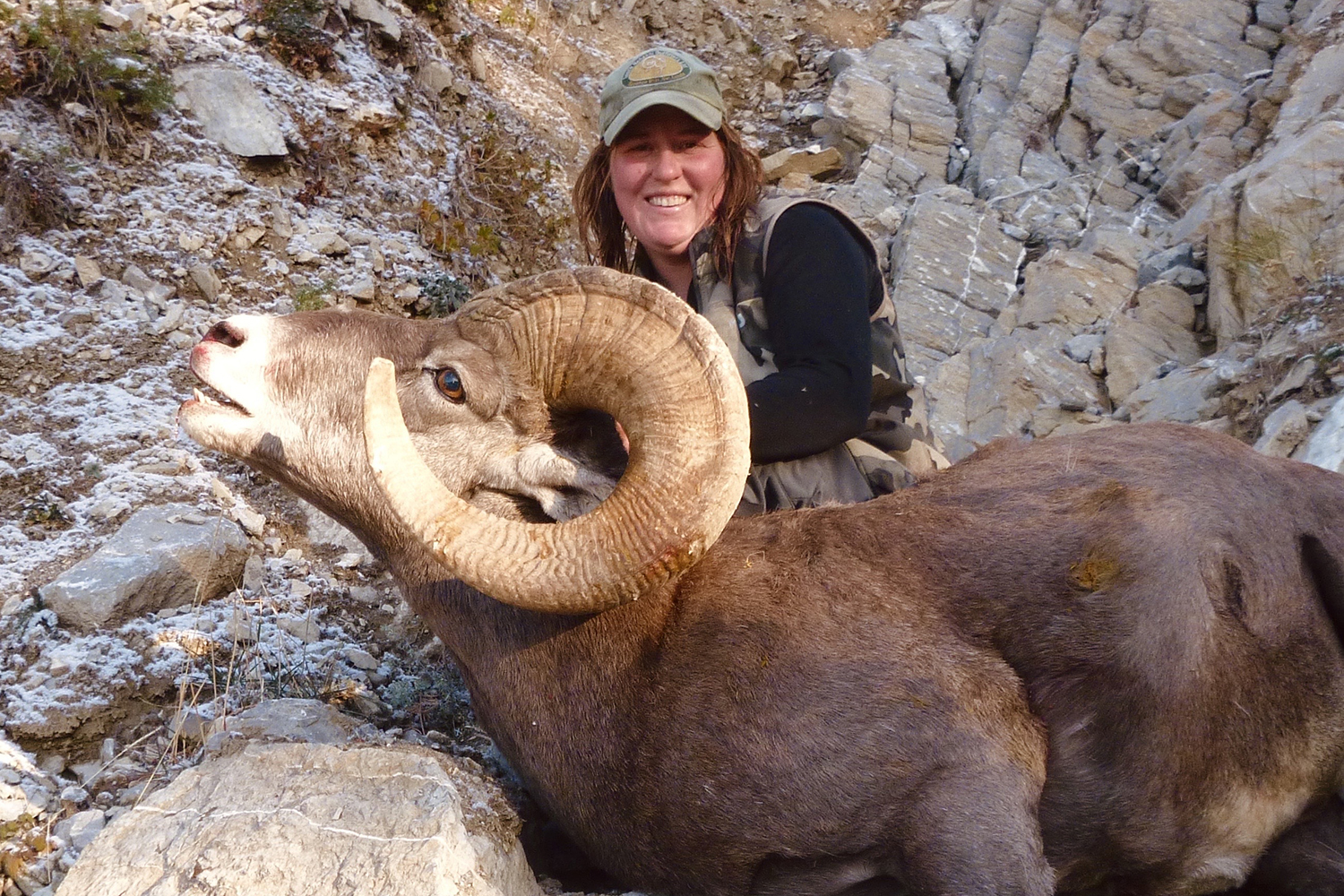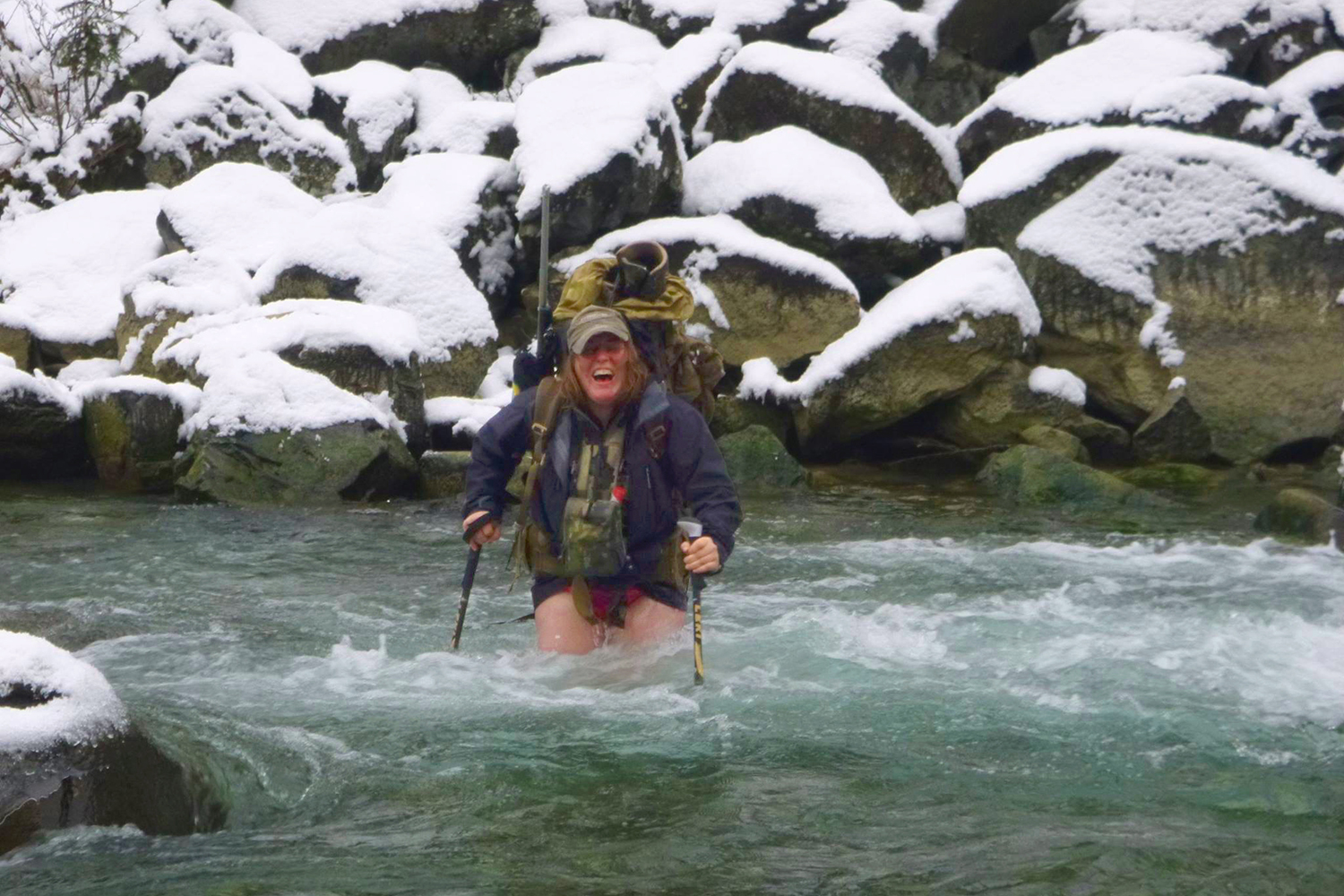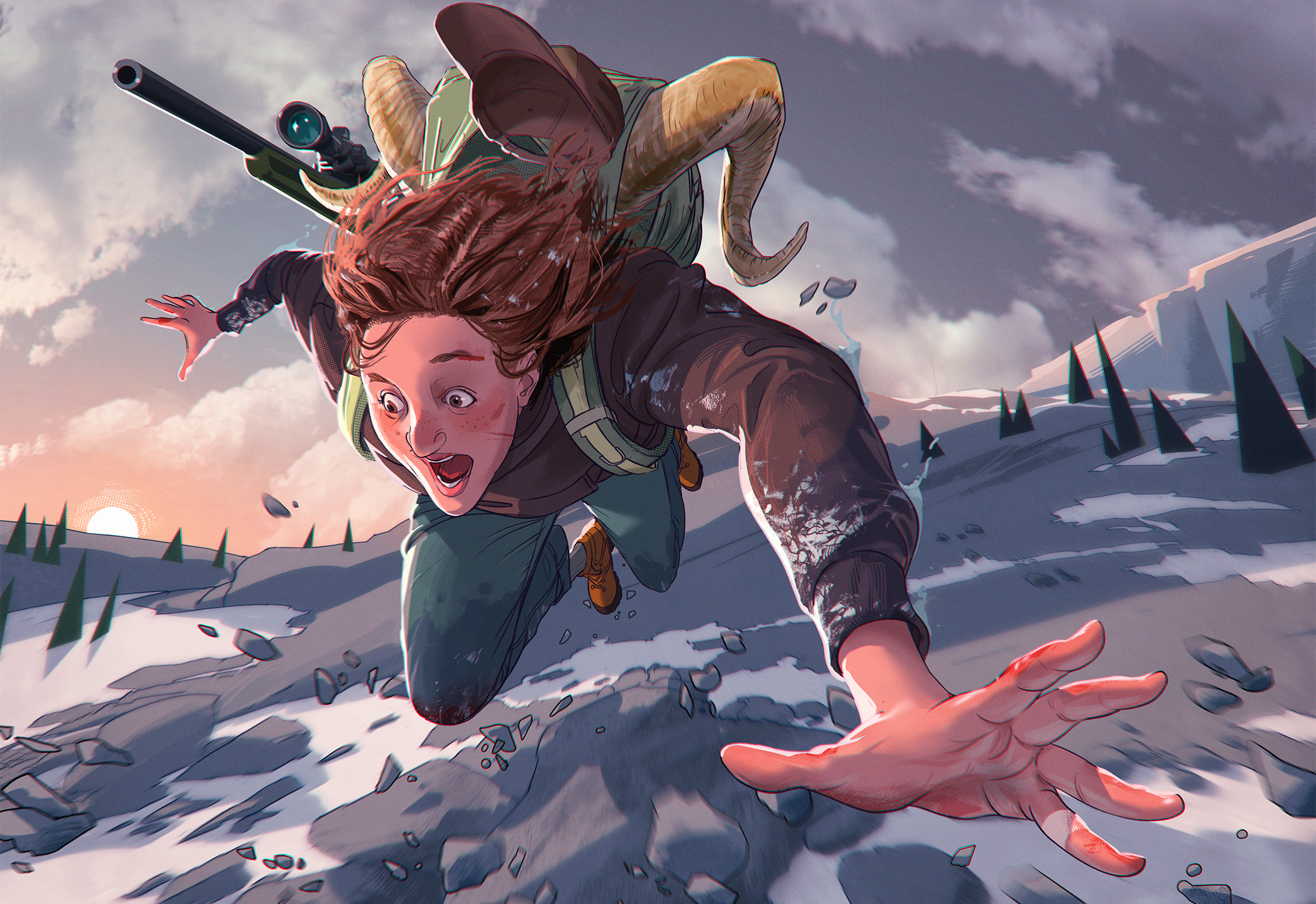WHEN I WAS 21, my goal was to kill a bighorn sheep solo. In preparation, I took off most of the fall to hunt, and I went in a week before the season to scout British Columbia’s East Kootenay mountains. Just before opening day, I spotted sheep on the back side of a giant peak, and one of them was really nice. I decided to stay up on the mountain all night and shoot the ram in the first hour of opening morning. It was T-shirt weather all day, but then a sudden winter storm blew in and dumped feet of snow. I was forced to hike back down the mountain to my tent.
I woke up at three in the morning and hiked through knee-deep snow back to the top. I looked down the back side of the mountain and, sure enough, the sheep were still there. But to descend this rugged peak and into position for a shot, I had to slide down a chute. As I slid, my clothes filled with heavy, wet snow.
At the time, I was too focused to care. I made a perfect stalk, got into position, and shot my ram. For the next fifteen minutes, I was on cloud nine. It was the most incredible thing I’ve ever accomplished: tagging a bighorn sheep on a solo hunt.
Then I realized I had killed him in a really difficult place. As I started butchering and caping, I began to think I had bitten off more than I could chew. I boned out all the meat and caped out the skull. Then I loaded my pack and started climbing the chute I had slid down.
The chute was so slippery, and my pack was so heavy, that I would take one step up and slide three steps back. There was no way I could get back up, so I started looking down the valley instead. There was a creek that seemed to flow in the direction of my truck. I started down the valley, and the snow decreased as I lost altitude, but got even slicker.

That’s when I lost my footing. I slipped and rolled for what felt like several hundred meters—then flew off a ledge. I landed on my back in a deep puddle, submerging the pack and my entire body. Just my face was above the water. My already-heavy pack—crammed with a whole sheep, my rifle, and my gear—was now filled with water. I couldn’t get up. I had to unbuckle the pack harness and wriggle out, then try to drag the pack out of the puddle. It was almost too heavy, but I finally managed it.
I had to cut my weight down, so I removed the meat and placed it by a large tree as a landmark, so I could find it again. There was no way I was leaving that sheep head, though—I was going to leave my spotter before I left that, even though it would have been a safer trip without those heavy horns.
It was getting quite late in the day, so I wanted to hike into the treeline where I could get a fire going, dry off, and warm up. I figured it would be a crappy night on the mountain, but I would be fine.
It didn’t take long for hypothermia to set in. It became so severe that I was certain I wasn’t going to make it. I started looking for a meadow to die in so a helicopter could find my body and give my family closure.
Somehow, with a $20 headlamp as my only piece of functioning gear, I just kept moving, one step after another, in the direction where I thought the road lay.
Instead, I ended up in a box canyon surrounded by cliffs. Because I hadn’t been in that area before, I hadn’t known the creek got that steep. I was so wet and exhausted that I was trudging through a knee-deep stream at one point. The seam of my pants ripped from my ankle to my crotch, and the pants leg was just flopping. I started chafing really bad, so I took my knife and cut the tatters off. That left me with one bare leg.
I started getting delirious. The hypothermia was so severe that I would almost pass out whenever I stopped to rest. But I never took my pack off, so whenever the pack would tip sideways, the sheep horns would hit me in the head and wake me up.
At one point, I had to lift my legs with my hands to get them moving again. Every muscle in my body wanted to relax, give up, and go to sleep. Somehow I kept going.
It wasn’t until I tripped and fell facedown on a bed of moss that I quit. I was just done. Lying on that moss with the weight of the pack on me, I finally felt at peace. I had gotten my sheep, and I felt warm lying there. I could feel my organs shutting down and life slipping out of me. I knew it was over.
Then, from out of nowhere, this little voice in my head said, “Hey, Cass. If you’re going to die, die on your feet.”
Still facedown on the moss, I moved my head a little bit to look for something to help pull me up. And I saw a tree that had been cut with an ax.

The sun was coming up, and I was on a horse trail. The realization gave me new life because I knew it would lead back to the road. At one point, while going down the horse trail, I had to take a sharp turn up a ridge. I was so out of it that I thought I had made a mistake and was now going in the wrong direction, because I topped out on a ridge that overlooked the ocean. It took me several minutes to process that I was actually looking at the valley with the road in it, covered in fog.
About 20 hours after I started packing out my sheep, I made it back to my truck. It was an almost impossible situation to survive. I’m not an overly religious person, but there’s no doubt in my mind: there had to be a higher power at work.
Read Next: Miracle on the Tundra: How One Caribou Hunter Survived a 5-Day Blizzard
It took several days for my core temperature to stabilize, and it was years before I felt comfortable sharing this story. I’ve since killed four more sheep by myself, and guided more than 50 hunters to their own sheep. But that ram will always be the most special.
I wanted to kill the ram so bad that I was willing to die for it. These days, I hunt smarter, I have better equipment, and I wouldn’t push it that hard ever again. I also carry much better fire starters, which I make with Vaseline and cotton balls. I keep them in a waterproof container, along with several extra lighters and matches. You learn from your mistakes, as long as you survive them.
We publish true adventures. Send yours to THTM@outdoorlife.com.
Read more OL+ stories.
